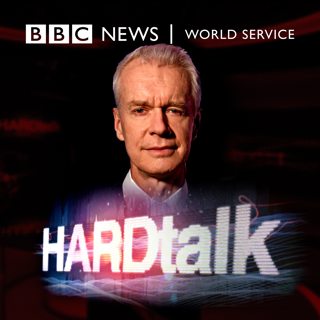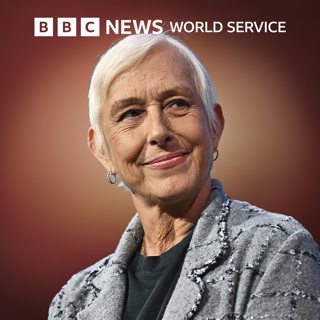
Nasser Judeh - Jordan's Foreign Minister
Jordan has survived the Arab Spring relatively unscathed, at least so far. Perhaps it is because the king has promised reform. But he is now on his fourth prime minister since the start of 2011 and the changes proposed so far won't do enough to satisfy his critics. They say King Abdullah is just buying time and is not serious about reform. And this in a country seen as critical to peace in the region not least because of its troubled neighbours, Syria and Israel. So how much time does Jordan have to sort itself out? Nasser Judeh, foreign minister of Jordan, talks to Sarah Montague.
14 Mai 201223min

NORMAN FINKELSTEIN – Political scientist
American Presidents have long been criticised for being too in thrall to the Jewish lobby, and that American Jews influence US foreign policy, which explains America's unwavering support for Israel. So what happens if American Jews fall out of love with Israel? That's what the Jewish American academic Norman Finkelstein claims is happening. He suggests that American Jews are now unhappy with what Israel is doing and they want to distance themselves from the country. Finkelstein is nothing if not controversial. He, after all, is famous for accusing Jews of exploiting the Holocaust. His actions have resulted in him being banned from entering Israel. Could he be right and, if he is, what does that mean for America's Middle East policy?
11 Mai 201223min

09/05/2012 GMT
The west faces a lost decade of economic stagnation. Unemployment is high, inequality is rising and governments are broke. Should we be blaming capitalism or looking to the market for solutions?HARDtalk’s Stephen Sackur speaks to Sir Ronald Cohen, one of Britain's most innovative business leaders. He is a pioneer of venture capitalism who is now committed to the idea of social investment, or capitalism with a conscience. Can the private sector combine a commitment to profit and the public good?
9 Mai 201223min

NHIAL DENG NHIAL – Foreign Minister, South Sudan
Africa's newest nation, South Sudan, is in trouble. Less than a year after independence from Khartoum, the South and its much larger northern neighbour are confronting each other over oil reserves, borders and territory. Sporadic fighting has prompted mutual recrimination and talk of all-out war.HARDtalk’s Stephen Sackur speaks to South Sudan's foreign minister Nhial Deng Nhial. The African Union and the UN are pushing hard for a negotiated settlement, but is it already too late?
1 Mai 201223min

Sir JOHN SULSTON – Nobel Prize-winning scientist
Science is constantly changing and deepening our understanding of ourselves and our planet. So is it time to give scientists a more prominent role in the debate about humanity's strategic choices; economic, political and environmental?HARDtalk’s Stephen Sackur speaks to Sir John Sulston, a Nobel Prize-winning molecular biologist who has led a Royal Society study into the global impact of population growth two decades on from the Rio Earth Summit. Can science help the human species change its ways?
29 Apr 201223min

OLEG DERIPASKA – Chief Executive, RUSAL
In post Soviet Russia, a small band of businessmen became unimaginably rich. These so-called oligarchs command assets worth billions of dollars, but their position isn’t without its perils in the era of Putin. Disloyalty to the Kremlin can have grave consequences. HARDtalk’s Stephen Sackur speaks to Oleg Deripaska, a billionaire many times over, the architect of a vast business empire that currently faces significant economic and legal challenges. Is the politics of Russia proving to be bad for business?
24 Apr 201223min

ZOE WANAMAKER – Actor
HARDtalk’s Stephen Sackur is at the Globe Theatre in London - a magical recreation of the theatre where William Shakespeare honed his theatrical genius in the late sixteenth century. Over the next six weeks every one of Shakespeare’s 37 plays is going to be performed, in 37 different languages by theatre companies from all over the world. He speaks to actor Zoë Wanamaker, honorary president of the Globe which was built thanks to the tireless efforts of her father, the American actor and director, Sam Wanamaker, about Shakespeare, the stage and her family's artistic obsession.
23 Apr 201223min

PETER KEEN - Director of Performance, UK Sport
The official Olympic creed says it’s not the winning that counts but the taking part. Try telling that to the elite professional athletes and their coaches who have dedicated their lives to the quest for a gold medal. With the London games now fewer than 100 days away HARDtalk’s Stephen Sackur speaks to Peter Keen, Performance Director for UK Sport. In Beijing four years ago, his strategies helped deliver a record medal haul for team GB - in London the aim is to do even better. But has the cult of winning gone too far?
20 Apr 201223min






















